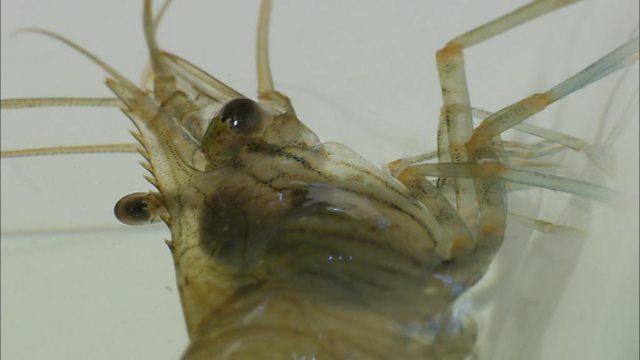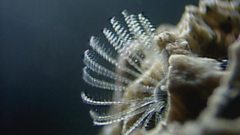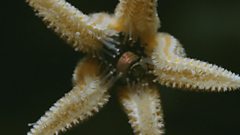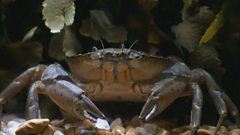
Rock pools by night
Professor Richard Fortey joins Dr John Spicer on a night rock pooling expedition. They investigate the changing levels of dissolved oxygen in an intertidal environment at night and how the rock pool inhabitants' behaviour alters in response to this. At night the rock pool is an exciting and sometimes violent place as the high humidity allows normally submerged animals to venture out. Photosynthesis does not occur, therefore dissolved oxygen levels can decrease rapidly sometimes to zero. The glass shrimp has developed a behaviour pattern that allows them to survive the low oxygen levels. By becoming partially submerged in the water, they use a special “pump” in their body to keep oxygenated and this allows them to stay alive in a time of crisis.
Duration:
This clip is from
More clips from Rock Pool Survivors
-
![]()
Climate change and barnacle distribution
Duration: 03:11
-
![]()
Predator prey relationships in rock pools
Duration: 04:15
-
![]()
Reproductive cycle of crabs
Duration: 07:28
-
![]()
Homely hermit crabs
Duration: 03:41





